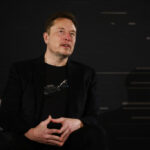
Kim Stanley Robinson, a bestselling science-fiction author, credits medical advances for saving his life twice. At 72, he continues his lifelong pursuit of imagining utopias, deeming it “an obligation to the people who come after us.”
However, the concept of utopia in 2025 is challenged by a record-breaking hottest year, ongoing wars, and global democratic crises. Robinson, speaking on Bloomberg Green’s *Zero* podcast, argues that these challenges shouldn’t halt the pursuit of better lives. He cautions against being consumed by political “soap operas,” emphasizing that most people desire a positive continuation of their daily lives.
Despite this, he acknowledges the increasing political division in many places, including the US. He describes the strong pull of nostalgia as a “delusion,” a “category error,” despite feeling it himself. Robinson also notes a decline in far-future thinking, attributing it to the multiple present crises which dominate our focus. He points out that science fiction is now largely focused on the near future.
This shift carries risks. Robinson’s 1990s *Mars* trilogy, which depicts human settlement on Mars in the 21st century, is now seemingly pursued by billionaires like Elon Musk. But his story portrays Mars settlements occurring while the Earth is undergoing an ecological disaster of human making. Robinson expresses concerns about Silicon Valley billionaires, stating “They’ve often become rich by being lucky… It’s suspicious as hell that 95% of them are men. That crowd is not to be trusted because often politically and philosophically, they’re intensely naïve.”
Robinson underscores that it is a small group of hubristic billionaires causing potential harm, while most ordinary people are simply trying to improve their lives. This fact, he says, gives him the greatest hope for the future. He acknowledges that the 2020s are a “crux in human history” and that while disorder is a rising force, a good outcome is still possible.
Akshat Rathi, host of *Zero*, introduced Robinson, describing him as a major influence. They discussed Robinson’s book *The Ministry for the Future*, which is set in 2025, a year now upon us. The book portrays a UN agency grappling with the grim realities of a warming planet. Rathi and Robinson reflected on how the real world has diverged from Robinson’s imagining from 2020 when the book was published.
Robinson observed an acceleration of both bad and good events. He was shocked by the unexpected reelection of Donald Trump, noting that the scenario depicted in *The Ministry for the Future* was largely conceived during the Trump administration, where the US was not a key leader in climate efforts. He noted that good trends such as cleaner energy becoming cheaper are path-dependent. He also saw the importance of the US Inflation Reduction Act, as it demonstrated that legislation can generate positive economic and private investment.
Rathi highlighted the importance of COP meetings in addressing global inequality. Robinson sees the COP process as vital yet insufficient, due to its consensus-based nature, with action also necessary at the national and international levels. He noted the UN is planning an envoy for the future, reminiscent of the titular ministry of his book. He revealed that his novel has inspired UN groups, especially the younger diplomats working within it.
Robinson describes how Oxford University’s establishment of a ‘Ministry for the Future’ as a public outreach space could create a new political economy capable of tackling climate change. He believes it could function as a setting to workshop ideas and influence people’s narrative around climate change.
He admits that the multiple crises experienced of late have caused a shift towards more near-future thinking. “You don’t think about what greatness will happen when we all live for 250 years,” explained Robinson, adding “Science fiction has collapsed to near future.”
When asked to imagine a utopia for 2025, Robinson said it would involve a realization that the world can’t depend on US leadership or leadership from the incoming administration. Rather, he suggests society’s resilience to the “fools at the top” and everyday people continuing positively is the utopian story, even in the face of a corrupt political system and strong challenges to democracy. Robinson concluded that “The good result is not impossible yet.”
They also discussed Colombia’s efforts to move away from fossil fuels. Robinson stresses the need for a system of discounted compensation for petrostates, paid over a century, to financially induce them to sign the fossil fuel non-proliferation treaty and transition to green economies and in order to avoid social collapse in these nations. He suggested that quantitative easing can be used to generate necessary funds for this endeavor, quoting economist John Maynard Keynes’ assertion, “Anything that we have to do, we can afford to do.”
Robinson then tackled the yearning for the past that he sees, defining it as “a delusion,” a “category error.” He emphasized his own love for science, having been saved twice by its medical advancements. He found it strange that anti-science sentiments continue to exist despite widespread reliance on and benefiting from it.
Responding to a question about the dangers of sci-fi thinking, he noted the danger of power for Silicon Valley engineers. He argued this group is often politically and philosophically naive despite being influential. But also added that his personal acquaintances show many who care about progressing society. He emphasized that billionaires should not be solely relied on to be the solution.
When asked for a wish for 2025, he returned to the problem at the political-economy level, noting how the EU operates – with many members states working as one despite internal challenges. Robinson wished for nations to take their membership in larger organizations like the UN seriously, as a guide to their actions, which would ultimately allow a better chance at solving climate change.
The podcast concluded with the sound of a trailer for the 1983 movie ‘End Game,’ set in a fictional 2025, highlighting how the past imagines the future.




